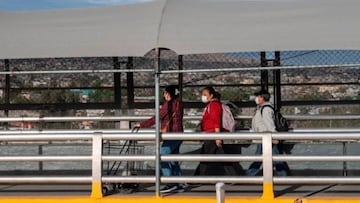How is the coronavirus outbreak affecting visa services in the US?
Since the United States announced a lockdown to stop the coronavirus pandemic spreading across the nation, all visa services have also been postponed.

On 15 April, there are 1,996,681 confirmed coronavirus cases worldwide, causing 127,590 deaths and with 500,771 recoveries. The United States has now become the epicenter of the virus with the highest number of cases and deaths. Since March 18, the U.S. went on lockdown and all visa services were suspended.
Many people living in the United States have visas that might expire soon and also the immigration policies imposed by President Donald Trump prior to the outbreak have prevented foreign doctors and nurses from entering the country.
Other people that were requesting citizenship or a residence are currently concerned because in all likelihood their cases are now going to be delayed. The U.S. Government already said they will allow applicants for H-1B visas to continue in the country.
The H-1B visa is a non-immigrant document that allows US companies to employ foreign workers in specialty occupations requiring theoretical or technical expertise. The technology companies depend on it to hire tens of thousands of employees each year from countries like India and China.
The US Department of Homeland Security (DHS), in a new notification, has said it recognizes that there are immigration-related challenges as a direct result of the coronavirus pandemic. The travel restrictions have left a number of H-1B visa holders stranded in the US with their visa permits soon to expire. However, the DHS will shortly start accepting applications for the extension of expiring visas.
"We recognise that non-immigrants may unexpectedly remain in the United States beyond their authorised period of stay due to COVID-19," the DHS said.
"We continue to carefully analyse these issues and to leverage our resources to effectively address these challenges within our existing authorities. The DHS also continues to take action to protect the American people and our communities, and is considering a number of policies and procedures to improve the employment opportunities of US workers during this pandemic," it said.
Related stories
The USCIS added that it "reminds petitioners and applicants that it can consider delays caused by the COVID-19 pandemic when deciding whether to excuse delays in filing documents based on extraordinary circumstances."
According to the corresponding terms and conditions, if an employer terminates the contract of an H-1B holder, the employee needs to find new employment within 60 days in order to retain the visa status. Consequently, Indian IT workers have been seeking an extension of this 60-day grace period to 180 days.